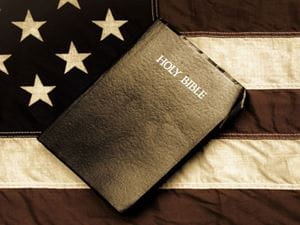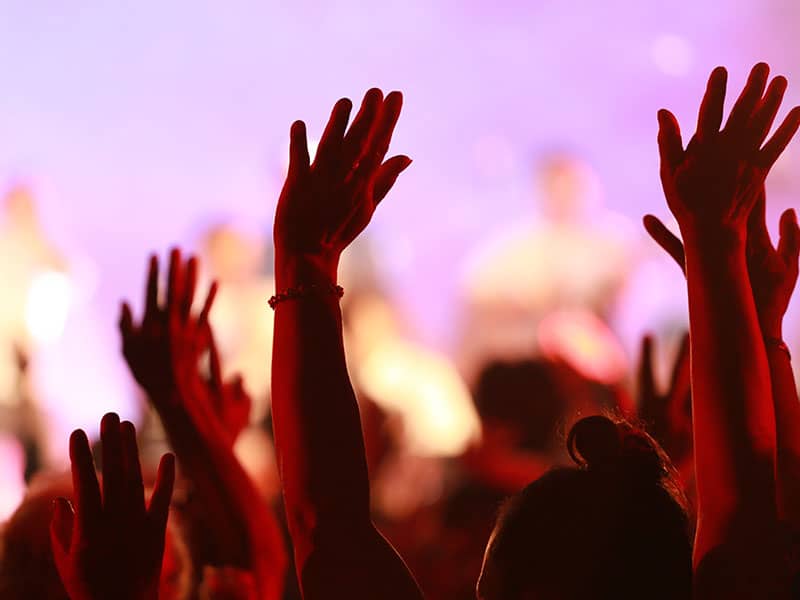
What does religious freedom mean and do we really care anymore? Freedom of religion is where one can worship the god of their choice, or deny any deity. Congress is prohibited to show preference over one religion over another.
We can find this guarantee of religious freedom and more in the United States Constitution. Freedom of religion is part of the five pillars of the First Amendment. Freedom of religion, speech, press, assembly, and petition are all built into the Constitution, something we are all familiar with. This was monumental for those who fought and died during the Revolutionary War. People sacrificed so they did not have to remain a slave to England's laws. People were limited under the Crown on whom they could worship. Since the Anglican Church dominated Britain, it added to the dissatisfaction to those who wanted to follow god the way they saw fit without persecution. This rebellion against British authority in the New World from colonists, and in Britain started to hit a boiling point.
Additionally, there were other reasons for the anger. Citizens were heavily taxed, and struggled to pay the King. Taxes increased to pay for the French and Indian War over seven years, leaving many to continue to suffer in poverty. In North America, the British American colonists were agitated by the various circumstances and revolted on being taxed. Many left Europe in droves in the pursuit of religious freedom even if it was to build churches in the American wilderness. Many passionate believers called this a "holy experiment," the Library of Congress summarized. This would prove that “God's plan for His churches could be successfully realized in the American wilderness. Even colonies like Virginia, which were planned as commercial ventures, were led by entrepreneurs were militant Protestants." New England colonies like Maryland, Pennsylvania, New Jersey, and New York started breaking away from Britain, which enforced a uniform religion. The Revolutionary War was launched by the 13 colonies. The Patriot leaders, mostly from Massachusetts, attacked British forces in Boston on April, 1775. Consequently, the war ended in 1783 to help birth a new nation. Three years later, the Constitution was signed in 1787.
It was during the 19th Century religion shifted to become more individualized with the Second Great Awakening, a Protestant movement, and it solidified religious liberty. The wave also launched the power of individual choice. A person was more empowered to turn to God and embrace freedom in that movement. However, those who did not desire religion usually kept it a secret due to the stigma attached to a “non-believer,” something the Founding Fathers did not want. James Madison, who was believed to be a Christian wanted all people to have the right to choose. He shared: “the religion then of every man must be left to the conviction and conscience of every...man to exercise it as these may dictate. This right is in its nature an inalienable right.”
Does this freedom mean anything to us today, with all the social and political turmoil in America during the 21st Century? According to a poll done by Pew Research, Americans are losing interest in religion. All those who fought for religious freedom might hang their heads in disappointment--but that is what makes America so inspiring to those living in other countries like Iran, were citizens can't freely vote. Many of the "nones" left their faith due to lack of belief and a dislike for organized religion. Just like the colonists, they too, have a choice. Yet, this upward tick of those not associated with a religion is on the rise. The American religious landscape is changing. During the study by Pew, people shared the reasons. They said organized religion is more divisive, it is the bane of existence--and it does not unify. Some believe that no one religion has it 100 percent correct. Some shared that they can pray anywhere, and don’t need a domination. Other explained that they will pray to God in their own way, since many of the religious do not live by example. Also formal religion made them feel uneasy. “The hierarchical nature of religious groups, several people who think religion is too much like a business and others who mention clergy sexual abuse scandals as reasons for their stance,” Pew reported.
This is their given right, something again, we value in America. As human nature goes, we have taken for granted this liberty over time. Perhaps as a society we have become brainwashed by culture to assume that these liberties will be protected outside the Constitution--they won't. Since the government is so involved in our lives, we are under assault as a society today. People can't pray in public without ridicule, or express any other religion without repercussions. Yet, we can’t blame the elected officials and the government for everything. Thomas Jefferson was an American Founding Father and the principal author of the Declaration of Independence—he desired a government that wouldn’t infringe on individual rights. He explained it would not be wise. "A frugal government, which shall restrain men from injuring one another, shall leave them otherwise free to regulate their own pursuits of industry and improvement, and shall not take from the mouth of labor the bread it has earned," he wrote. George Washington and his army didn’t fight against the Red Coats so Americans would be over-regulated, getting involved in the affairs of others, and where there was religious persecution.
Religious freedom has different meanings to people today. It is their right to choose, but many have forgotten the price paid to live in a land where this is accepted, although not perhaps valued. Maybe this is the reason the "nones" are leaving religion altogether. We should care about the aforementioned freedoms whether we prescribed to a religion or not. When we began as a country to not value the ideas that “all men are create equal,” no matter what our difference are, then the very fabric of our values as a nation remains intact. This also includes what side of the political spectrum you fall. Politics aside, America needs to stand together against the threat against freedom of religion, and the threat against to our democracy.

